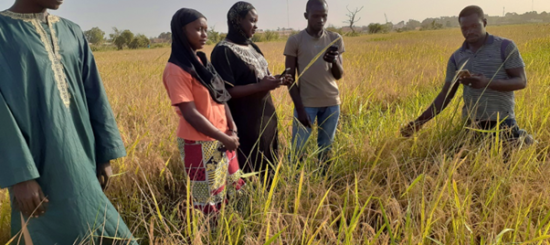A data center, a business center, an incubator, training and research spaces equipped with state-of-the-art facilities... Cape Verde's new technology park, called TechPark, which is due to open in June in Praia, sums up the archipelago's digital ambitions: to position itself as a technology hub in the Economic Community of West African States (ECOWAS), the community space to which the small island nation (4,033 square kilometers) is attached. And beyond that, as the "gateway to Africa" for major international companies in the sector.
"Attracting large international companies to set up shop in order to help local businesses and startups become more competitive"
Announced five years ago, the 40-million-euro TechPark project funded by the African Development Bank (AfDB) and the State of Cape Verde should be a decisive step in achieving this objective. Located 3 km from Praia International Airport, this technology park - which will eventually cover an area of 50 hectares –fits into the country's overall strategy to promote innovation and developtech companies. That sector is seen as a strategic lever for the future growth of the country, which is still very dependent on tourism (25% of GDP) and remittances from its large diaspora (700,000 people for a Cape Verdean population of 550,000). It's not surprising, then, that the authorities are pulling out all the stops to meet this new challenge of the digital economy. During a visit to the technology park's construction site last October, Olavo CORREIA, Cape Verde's Minister of Finance and Deputy Prime Minister said "fiscal, parafiscal and other incentives" would be granted "to attract large international companies to set up shop [in order] to help local companies and startups become more competitive".
A digital services platform for Africa

Moreover, beyond the positive spin-offs expected - creation of a thousand direct jobs and as many indirectly; 7.5 million euros of average annual revenue expected during the first five years of operation - the TechPark will also significantly strengthen training in new digital jobs.This is a key component to become a recognized platform for digital services in Africa, and it is supported by the Cape Verdean government. At the end of May, the country's authorities and the pan-African training platform 01Talent signed a cooperation agreement to create the first "collective intelligence zone" called Zone01 Cape Verde, within the technology park. Organizers said a total of 300 talented young people from CapeVerde and 26 other African countries, selected on the basis of their merit, skills and motivation, will follow a curriculum incomputer programming and coding professions, with solutions provided by the French IT service company Atos.
Accelerate the country's digital transformation process

The Zone01 Cape Verde initiative should help accelerate the country's digital transformation process... and generate a number of opportunities for local youth, as the project's sponsors estimate that 3,000 new developer jobs will be created over the next 10 years on the archipelago. Representing the Cape Verdean government at the signing of the agreement with 01Talent, Pedro LOPES, Secretary of State for Innovation and Vocational Training, reminded the audience that "youth is the priority, the most precious human capital and the driving force behind digital transformation. He further stressed that"there was "no better way to prepare for the future than to train young people to meet all the technological and human challenges of the future [...]". As for CapeVerde's ultimate ambition to become "a reference on the African continent in terms of technology," according to the aforementioned Secretary of State, it is beginning to take shape. Slowly but surely, the World Intellectual Property Organization's Global Innovation Index has included the country in its 2020 ranking for the first time (100th out of 131), while it was previously absent.
African champion in E-government
Cape Verde is also one of the leading African countries (8th in the continent) in the E-Government Development Index (EGDI), a UN index that takes into account the online services offered by the government, human capital and telecommunications infrastructure. On this last point, the archipelago should continue to enhance its digital attractiveness, and feed its ambitions, with the recent connection to the submarine optical cable EllaLink, effective since late 2020. This is another access to the Internet for a country that is more than ever nourishing its ambition to be the "gateway to Africa".





